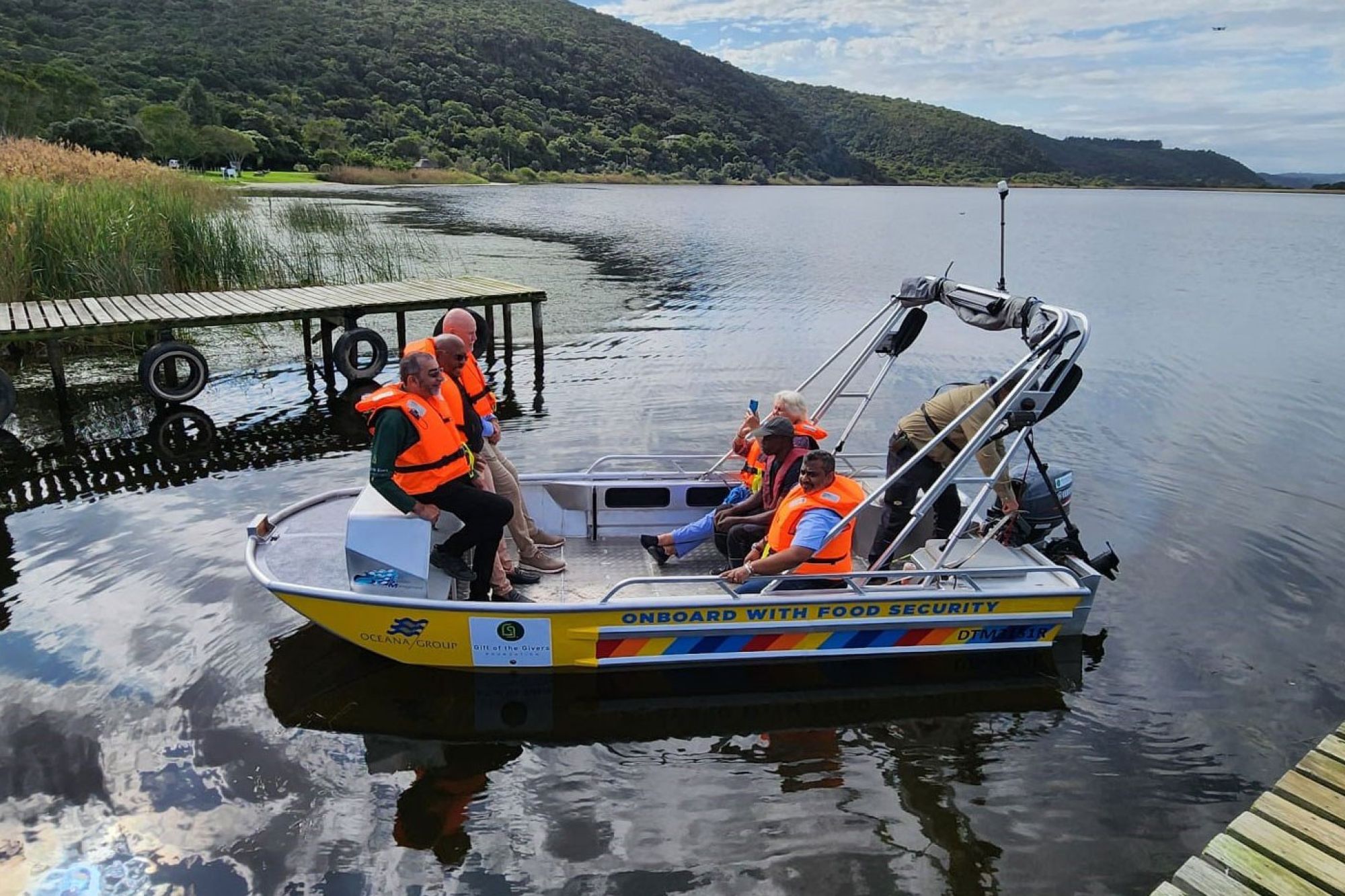
CapeNature’s Groenvlei Carp Community Project gifted new fishing boat
The picturesque setting of Island Lake in the Wilderness recently played host to a significant event on 8 May 2024. CapeNature’s Groenvlei Carp Project supported by Gift of the Givers were gifted a new fishing boat by the Oceana Group. Thousands of people from communities in the Southern Cape and Karoo have benefitted from this extremely successful feeding scheme project.
CapeNature CEO, Dr Ashley Naidoo, was in attendance to confirm support for this ongoing project, which sees CapeNature partnering with the Oceana Group, Isuzu South Africa, and Gift of the Givers.
“The Oceana Group sees the value of this project, having initially sponsored a refrigerated trailer, which has become critical for the distribution of carp.
The boat that has been in use is not designed for carp removal and Oceana has shown enormous heart in sponsoring a new boat for the project. This, in conjunction with the other equipment, will be instrumental in increasing the efficiency of this operation,” said Dr Naidoo.
The Oceana Group is a global fishing and food processing company.
The project was initiated in 2018, by Johnny Snyman, who has since become a vital partner through his non-profit organisation Invasive Fish Species Management (IFSM). Initially, the idea was to remove the invasive carp from the Groenvlei and use it for organic compost.
Following the onset of the COVID-19 pandemic, the focus shifted towards using the fish as a source of food. Over the past year, more than 9,700 kgs of carp have been removed from Groenvlei and since inception, the programme has fed around 320,000 people through soup kitchens and communities in need along the Southern Cape.
Gift of the Givers, in their unwavering support, has ensured that the carp harvested is of the highest quality and fit for consumption, distributing the fish to nearby communities and as far as Oudtshoorn, Calitzdorp, and Uniondale.
The initiative stands as an example of the power of collaboration and innovation in creating positive change for the environment and communities in need. The project has grown and is now being extended to water bodies managed by the South African National Parks (SANParks) as well.

Related News
How can I assist you today?
How can I assist you today?



